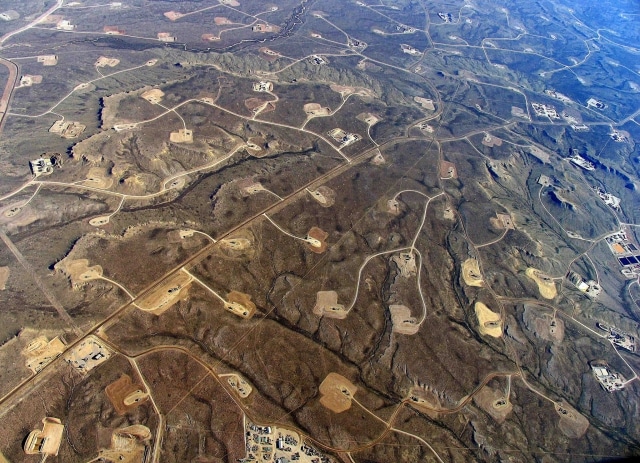Three million abandoned fracking wells in the US are thought to be potentially leaking substantial amounts of poisonous methane gas into the atmosphere, a new study by Princeton University reveals.
“The research indicates that this is a source of methane that should not be ignored,” said Michael Celia, Professor of both Environmental Studies and Civil and Environmental Engineering at Princeton, adding “We need to determine how significant it is on a wider basis.”
The study estimates that methane emissions from abandoned wells will increase total emissions to double that of the oil and gas industry’s current output.
After studying samples taken from 19 wells in northwestern Pennsylvania, the hub of the ‘shale revolution’ in the US, the researchers found all of them to be emitting varying levels of methane gas, with 15 per cent of the wells releasing far higher levels than predicted.
There are currently three million abandoned fracking wells dotted across the US, with no standardised way of ‘capping’ or sealing them, states Denise Mauzerall, a Princeton professor and a member of the research team.
“This may be a significant source,” Mauzerall said. “There is no single silver bullet but if it turns out that we can cap or capture the methane coming off these really big emitters, that would make a substantial difference.”
Political hype
With the UK coalition government’s hard-line pursuit of shale gas as a viable energy investment, increasing numbers of environmental groups and local communities have expressed deep concern at the effects of hydraulic fracturing on the local environment.
Talking to DeSmogUK, Greenpeace UK’s chief scientist Professor Doug Parr expresses similar concerns with fracking in the UK and the fossil fuel industry’s track record with environmental impacts, stating: “The life cycle of many fossil fuels shows that their impacts on communities and people are much greater than from just the carbon dioxide when they are burnt.
“The study shows that even conventionally extracted oil and gas could be having a greater climate impact than anticipated. This particular problem could be fixed – but here fossil fuel producers have run off with their cash and left the public purse to clean up their mess.”
“The risk remains that the untried UK fracking industry could exploit political hype to do the same,” Parr added.
The researchers have stressed that the study is in its early stages, but have estimated that the effects could be extreme, with abandoned wells leaking harmful gasses for decades after being abandoned.
Photo: Simon Fraser University via Flickr
Subscribe to our newsletter
Stay up to date with DeSmog news and alerts







